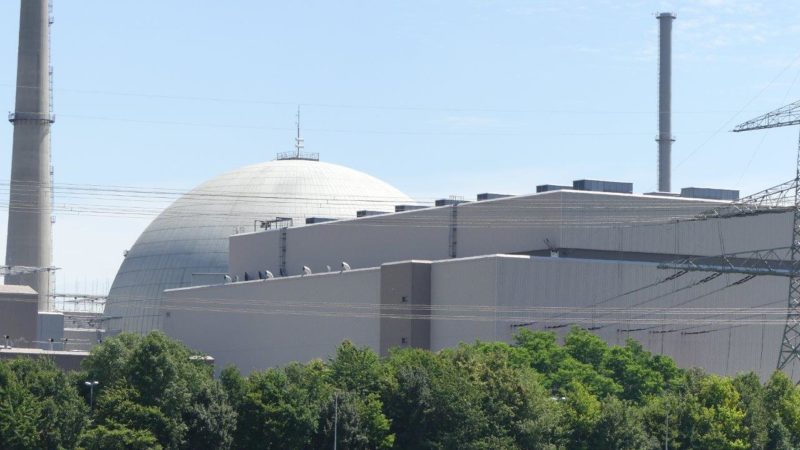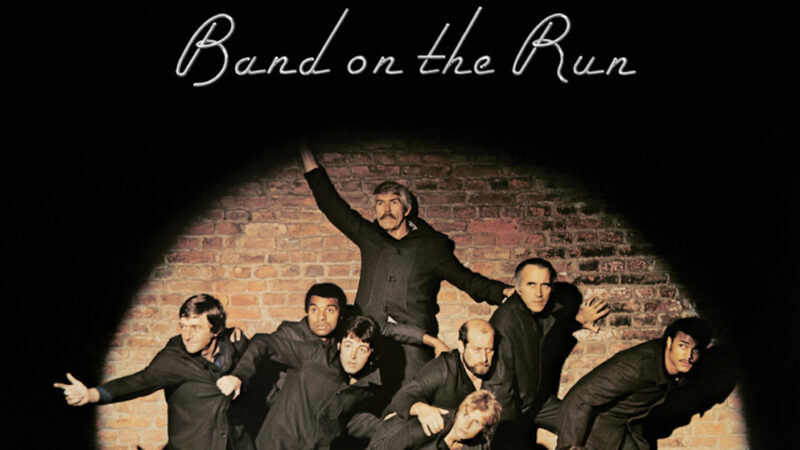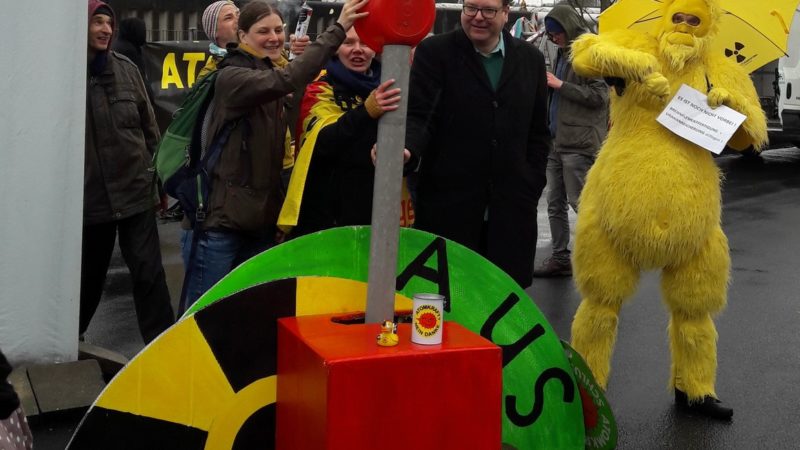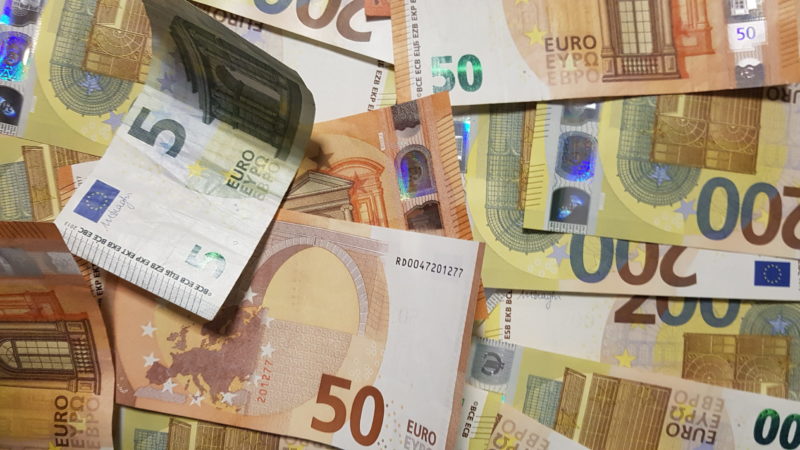Uranabbau in Grönland? – Besser die Finger von lassen

Weltweit wird von internationalen Konzernen intensiv nach Rohstoffen gesucht, darunter auch das für die Atomwirtschaft notwendige Uran. In Folge der Klimakatastrophe wird auch Grönland als ein künftiger Uran- und Rohstofflieferant immer bedeutsamer (Spiegel). Die Regierung hat angekündigt, den Uranbergbau angehen zu wollen und hat ein entsprechendes Verbot im Herbst letzten Jahres aufgehoben. Im März haben zwei Konferenzen in Nuuk und in Kopenhagen stattgefunden, die sich mit den Folgen des Uranbergbaus befassten. Als Fazit ist klar: Der Widerstand gegen einen Uranbergbau in Grönland hat erst begonnen. Hier als Dokumentation eine englischsprachige Pressemeldung der Organisatoren.
- Dreckiger Uranabbau: Immer mehr Länder wollen mitmischen
- alles zum Thema Uranbergbau auf dieser Seite
“Copenhagen and Nuuk, Thursday 27 March 2014, International conferences in Nuuk and Copenhagen document that uranium mining is not sustainable
Saturday 22 March and Tuesday 25 March, international conferences were held in Katuaq, The Cultural House of Greenland, in Nuuk, and in the Parliament building, Christiansborg in Copenhagen on the impacts of uranium mining in Greenland and the rest of the world. The organisers of the conferences were Avataq, The Danish Ecological Council, NOAH Friends of the Earth Denmark and SustainableEnergy.
Their objective was to help in providing information for the Greenlandic and Danish governments to determine whether the extraction, production and export of uranium can be done safely with respect to public health and the environment and if so how. Some of the world’s most prominent experts on the nuclear fuel chain gave lectures at the conferences, including the Australian pediatrician, Helen Caldicott, who for more than four decades has been one of the most influential anti-nuclear activists in the world, and Jan Willem Storm van Leeuwen, expert in chemistry and energy systems at Ceedata Consultants in the Netherlands.
Furthermore, lectures were given in Copenhagen by Cindy Vestergaard, senior researcher at the Danish Institute for International Studies, and in Nuuk by Søren Hald Møller, headof the Greenlandic Environment Agency for Mineral Resources.
Storm van Leeuwen presented the first independent preliminary analysis of the health and environmental impacts of the controversial rare earth elements and uranium mining project at Kuannersuit/Kvanefjeld in Southern Greenland.
“After being bombarded with propaganda by the mining industry for more than five years, we finally get some neutral information from independent experts”, says Mikkel Myrup, chairman of Avataq, who attended both conferences. “Some of the parliamentarians who participated in the conference in Nuuk, made it clear that it was exactly this type of information that was lacking six month ago, when the uranium ban was repealed. It could have changed their vote”.
The conference in Nuuk was attended by the Minister of Industry and Minerals, Jens-Erik Kirkegaard. The politicians’ debate panel also included the chairman of the government party Atassut, Gerhardt Petersen, the chairman of Demokraatit, Anda Uldum, the vice-chairman of Partii Naleraq, Per Rosing Petersen, Saxtorph Didriksen from the government party Siumut, Kalistat Lund from Inuit Ataqatigiit, and the chairman of Partii Inuit, Nikku Olsen – most of them members of the Parliament of Greenland, Inatsisartut’s Natural Resources Committee.
“One of the most important messages is that there is still significant opposition to uranium mining in the Greenlandic and Danish parliaments”, says Hans Pedersen from Sustainable Energy. “At both conferences, representatives of Inuit Ataqatigiit stressed that the party intends to roll back the repeal of the uranium ban, when it returns to power”.
Johan Lund Olsen from Inuit Ataqatigiit, Finn Sørensen from the Red-Green Alliance and Christian Friis Bach from the Social Liberal Party participated in the politicians’ panel debate at Christiansborg. Among the more than one hundred attendants of the conference were representatives of research institutions and authorities, including the Prime Minister’s Office, the Ministry of Foreign Affairs, the Ministry of Business and Growth, Greenland Representation, The DCE – Danish Centre for Environment and Energy, the Danish Working Environment Authority, GEUS – the Geological Survey of Denmark and Greenland, the National Institute of Radiation Protection, Danish Decommissioning and European Environment Agency.
Both conferences were attended by members of citizens’ groups in Narsaq – the town located nearest to the planned uranium mine at Kuannersuit – who expressed their concern over the possible health and environmental impacts of the mining project. “There is no doubt that the opposition to uranium mining in the Danish Realm continues”, says Palle Bendsen from NOAH Friends of the Earth Denmark. ”During the last year we have developed an efficient cooperation between Greenlandic and Danish NGOs. At the same time, we benefit from the inputs from an ever-increasing network of international experts”.”
The conferences were funded by OOA Fonden, Græsrodsfonden, Gaia Trust, Miljø- og Energifonden af 2005, 1. Maj Fonden and Plums Fond for Økologi, Fred og Bæredygtighed. The lecturers’ presentations can be found here: http://ecocouncil.dk/en/releases/presentations
For further information, please contact:
For Avataq (www.avataq.gl): Mikkel Myrup, tel.: +299 22 84 23, e-mail: mikkelmyrup(at)post.com
For The Danish Ecological Council (www.ecocouncil.dk): Christian Ege, tel.: +45 33 18 19 33, (mob.) +45 28 58 06 98, e-mail: christian(at)ecocouncil.dk and Niels Henrik Hooge, tel.: +45 21 83 79 94, e-mail: nielshenrikhooge(at)yahoo.dk
For NOAH Friends of the Earth Denmark (www.noah.dk): Palle Bendsen, tel.: +45 98 14 76 95, (mob.) +45 30 13 76 95, e-mail: pnb(at)mail.dk
For SustainableEnergy (www.ve.dk): Hans Pedersen, tel.: +45 51 92 24 14, e-mail:
pedersen(at)ve.dk





